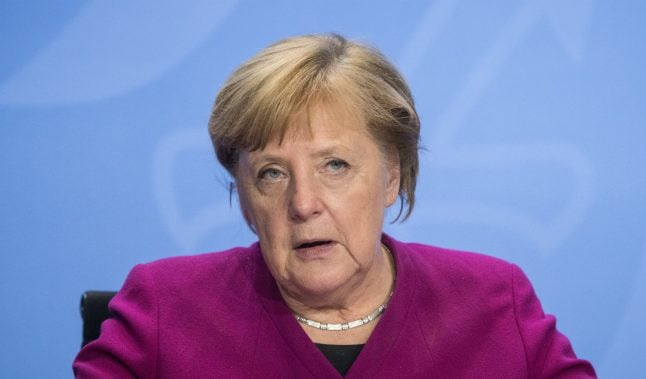Limits will be imposed on the numbers of people at private events if an area records more than 35 new infections per 100,000 people over seven days, and even more stringent caps if that number exceeds 50.
“I am convinced that what we do now will be decisive for how we come through this pandemic,” Merkel said after the eight-hour meeting that ended late on Wednesday night.
“We can see that … infection rates are rising and that we have a very high infection rate in some regions,” she added.
“We must therefore prevent an uncontrolled or exponential increase.”
She appealed to the population to support the measures. “Personally, I simply believe that we have the means in our hands to fight and deal with the virus,” said Merkel. “This is a huge challenge that could entail a lot for health, the economy and also for young people.”
Merkel appealed directly to the country's younger citizens, urging them to avoid parties for now.
“We must call especially on young people to do without a few parties now in order to have a good life tomorrow or the day after,” she said.
READ ALSO: Merkel calls for tougher restrictions to fight coronavirus surge
'Second lockdown closer than we want to admit'
Meanwhile, Bavarian state premier Markus Söder warned that a new lockdown could be on the horizon.
“We are actually much closer to the second lockdown than we want to admit,” he said after the meeting.
Söder said the economy and society faced “considerable damage” if the situation got worse.
Tougher measures
If an area records more than 35 new infections per 100,000 people over seven days, masks will become mandatory in all places where people have close contact for an extended period.
The number of people allowed to gather will also be limited to 25 in public and 15 in private spaces.
“We have decided on this prophylactic number of 35 because we have seen some examples of how fast the increase happens from 35 to 50,” Merkel said.
Once a threshold of 50 new infections per 100,000 is exceeded, even tougher restrictions will apply.
These include limiting private gatherings to 10 people or two households, and the closure of restaurants after 11pm.
Hotel ban a sticking point
The fraught talks lasting eight hours were intended to establish a more unified approach amid concerns that Germany's federal system is leading to a confusing patchwork of regulations.
But a particular sticking point was a ban agreed last week on domestic travellers from so-called risk zones from staying in hotels or holiday apartments.
With some state premiers seeking to overturn the ban, Merkel said talks over the subject would be postponed until after autumn school vacation on November 8th.
The Chancellor did, however, urge citizens to avoid unnecessary travel within Germany to and from areas with high coronavirus infection rates.
'We will see if it is enough'
On Wednesday Germany logged more than 5,000 new daily cases, the highest number since the peak of the crisis in April.
READ ALSO: Germany reports more than 5,000 new coronavirus cases within a day
Even more curbs could be imposed if the upwards trajectory of new infections is maintained, Merkel warned.
“We will see if what we've done today is enough,” Merkel said after Wednesday's decisions.
“That's why my worry is still not gone after today.”



 Please whitelist us to continue reading.
Please whitelist us to continue reading.
Member comments